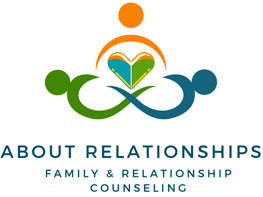Intimacy During the First Year of Parenthood
Welcoming a child into a partnership is an exciting yet daunting time for couples. Whether it’s a planned or unplanned pregnancy, parenthood is sure to change a person’s life in more ways than one. Aside from the expected changes in sleep, energy levels, and responsibilities, one major shift that tends to happen—and for which most are not prepared—is the change in intimate relationships during this period.
Most, if not all, couples I’ve worked with report feelings of disconnection, feeling like “roommates” or “ships passing in the night.” But who wouldn’t feel consumed by the task of taking care of a new little human? It often feels like The Hunger Games: Parent Edition. As we adjust to being new (or even experienced) parents, relationships—and subsequently, romance—take a back seat. Both partners’ priorities shift to their little one. While many people believe the romance is disappearing, the reality is that each partner’s love language may be changing as they themselves are evolving. This isn’t necessarily a bad thing; it simply is. In fact, it can be a great opportunity to rediscover each other and fall in love all over again with the new version of the person in front of you. Often, we are under the illusion that relationships are effortless. They aren’t! They require a lot of work, especially during challenging times.
My best friend of 26 years has been married to her husband for over 10 years. Before they got married, they had been together since we were 15. I remember a few years ago we were having lunch, and she told me how her marriage had gone through that stage. They incorporated a date night on Fridays—every Friday—and a family day on Sundays. These days were sacred for them. I thought it was a genius idea and something I wanted to incorporate myself.
As time passed, I realized that this isn’t feasible for everyone. In sessions, I often hear couples mention time, work, and money as the biggest obstacles. So I went back to the drawing board and asked myself, “How can I help couples who don’t have enough time, energy, and/or money connect without making a big commitment or production out of it?”
One day, the answer found me. While scrolling through Instagram, I saw an advertisement for a book called The Adventure Challenge (I have no affiliation with this company). The short reel showed a couple sitting at a table, eating dinner and seductively staring at each other without saying a word. I found it odd, but it piqued my curiosity, especially when they suddenly got up and headed to the bedroom. Intrigued, I went to the page and saw a few more ads. One reel I distinctly remember showed a couple in the kitchen cooking dinner, with the twist that one partner was blindfolded while the other guided their hands. It seemed very sweet and intimate.
As I read more about it, I discovered these were scratch-off scrapbooks with a Polaroid camera where couples could engage in different activities to enhance intimacy and connection. They had various editions, such as “In Bed Edition,” “Couples Edition,” and “Solo Edition.” I also found many different card games and activities aimed at couples. Since I love adventure, games, spontaneity, and laughing, these books and games really caught my attention. I suddenly realized that intimacy and romance aren’t about the grand gestures we see in movies; they’re about feeling cared for, loved, seen, and understood.
I started giving my couples various ideas to fit their budgets, lifestyles, and schedules. I always encourage them to use these aids, if possible. However, I could sense that many couples felt overwhelmed by the idea. So, I started to suggest going back to basics.
During times of major life transitions, high stress, and low energy, thinking about planning a date or pulling out a book or game can be too much. I began asking my couples to take just five minutes before bed (set a timer if necessary) and ask each other a thought-provoking question.
Some examples include:
“If you won the lottery, what would your life look like in five years?”
“If you didn’t know your age, how old would you think you are?”
“What’s something you do differently than anyone else you know, and why?”
Couples seemed more open and willing to try something that feels less personal but still enhances their connection. They also found five minutes of their day to be much more feasible.
